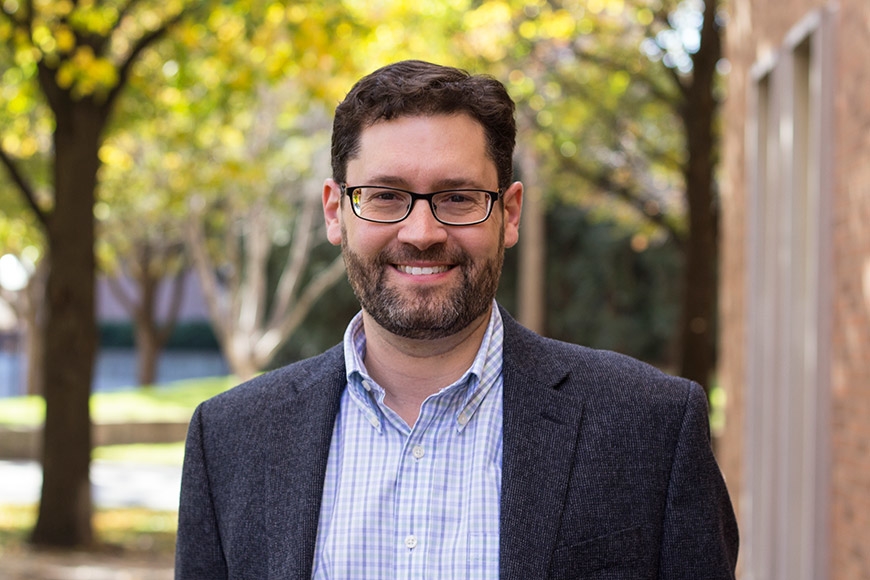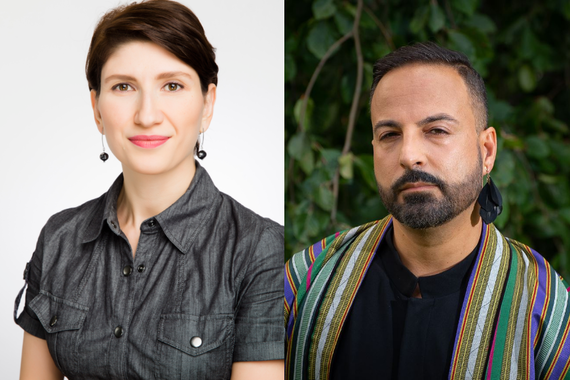Ron Krebs Named Distinguished McKnight Professor
We are proud to announce that Professor Ron Krebs has been named a Distinguished McKnight University Professor!
The Distinguished McKnight University Professorship program honors and rewards outstanding faculty members who have made significant advances in their careers while at the University of Minnesota and have recently achieved full professor status. Recipients are selected on the basis of merit, research, accomplishments, leadership activities, and other factors. This program is administered by the Office of the Executive Vice President and Provost.
Upon hearing that he received this award, Ron felt stupefied, surprised, and deeply gratified. "Winning this award means that colleagues around the discipline think I've done some pretty good and important research," he reflected, "and that distinguished colleagues in the University—to which I've devoted my entire professional career—think so too."
Life and history entwined in global politics
There was no sudden epiphany that Ron desperately wanted to live a scholarly life. It was by no means the only professional path he ever imagined taking, as academia was so far removed from his family's experience. However, it makes a great deal of sense to Ron that he became a professor of global politics, specifically international security, because of his family's history being deeply intertwined with the horrors of 20th century warfare. As child survivors of the Shoah (Holocaust), his parents had intimate knowledge of violence and privation, of displacement and absence of home. Their fear of insecurity, and their appreciation for security and stability, were visceral. His parents were "illegal" immigrants; on both sides, his grandparents had lied to secure visas to the US and Canada in 1951, and the fear of being found out and deported weighed on them and their children all their lives. Global politics was not an abstraction in their home; its pressures and possibilities were part of their concrete, daily existence.
Research: past and current
Ron has always had a foot in two worlds with regard to his career: he is, first and foremost, a scholar of international security, but he is also a writer for general interest outlets. By bringing his research to bear, his hope is to "shape some of our public debates, introduce new ideas, and elevate our public discourse." Moving forward, Ron hopes to write more frequently, and in longer formats, for broader, non-scholarly audiences.
In his research, Ron shows that rhetorical battles over national security are not a side show diverting attention from the "real" drivers of policy. "Language in its various forms, from rhetorical tropes to dominant narratives, shapes the politics of national security," he asserts. "Language is power politics." He sustains and develops this claim across diverse substantive questions and domains—the making of US national security policy from the 1930s to the present, the effects of war on democracy, the consequences of military manpower policy for the politics of citizenship, and the impact of venerating soldiers and the military.
Ron's research begins with real-world puzzles and real world consequences that trouble him. Ron's first book, Fighting for Rights, began with the observation that minorities, who are often targets of discrimination, nevertheless often sign up for military service in times of war. He wondered: why would they sacrifice for a nation that has shown so little interest in welcoming them into their midst? Sometimes they succeed in leveraging their sacrifice to make progress toward first-class citizenship. Why does that seem to matter, when the decks are so stacked against them?
His next book, Narrative and the Making of US National Security, was motivated by the puzzle of the post-9/11 world, which took shape just was Ron was finishing his doctorate. He was surprised at how swiftly the Global War on Terror (GWOT) came to dominate national debate, how easily alternatives were cast to the margins, how readily Iraq was folded into the GWOT, and how long the GWOT lasted. Living through the War on Terror led him to ask: why and when do some narratives of national security become dominant, and why and when do they then fall from that dominant perch? His work on war and democracy is also rooted in the politics of the post-9/11 period, and his dep concern over the erosion of democracy in the US and around the world.
Ron's current research on militarism begins with yet another real-world puzzle. Around the world–not just in the US–people talk about soldiers as if they were the best of us, as if they enlisted always out of idealism and patriotism. But increasingly countries around the globe recruit soldiers on the open labor market, the military is often falling short of its enlistment targets, and the prospective soldiers are clearly responsive to material incentives. Why do people so often worship the nation's soldiers? And what are the consequences of this disconnect between the reality of military recruitment and this romanticized ideal? These questions lie at the center of Ron's current research. The answers matter, he maintains, for people's lives, the health of our political institutions, and the vitality of democratic debate.
"Modern militarism involves presenting soldiers as the embodiment of good citizenship, idealizing and romanticizing them as paragons and exemplars," Ron explained. "It denies the reality that today soldiers in most countries around the globe–particularly in the West's advanced, industrialized democracies–are volunteers and that financial incentives are critical drivers of their recruitment. Soldiers have not always and everywhere been treated as objects of universal admiration, and it is puzzling that militarism has gathered speed even as mass armies have given way to smaller professional forces. Militarism is globally pervasive, but it is flying under our collective radar screen." This upcoming book, aimed at both scholarly and general interest audiences, employs diverse data to shed light on militarism's origins and, especially, its consequences.
Additionally, Ron is working on a collaborative project on narratives of national superiority. Despite the massive literature on American exceptionalism, and occasional studies of other nations' claims to superiority, there is no work examining and theorizing across countries the bases, origins, and policy consequences of asserted exceptionalisms. Their project seeks to fill that large gap.
In the classroom
All of this work translates back into the classroom, at all levels. "Helping undergraduate and graduate students identify the real-world puzzles that annoy, disturb, and trouble them, that they think have important and worrisome consequences, helping them identify the deeper theoretical questions at the heart of their own research projects, and guiding them through the challenge of reaching empirically-grounded answers," is what makes teaching so rewarding for Ron. "Any success I've had as an instructor is another real-world consequence of my research."


